2017 News and Poetry Posts 2017
December 22nd, 2017
James McAuley‘s poem “Retreat” has been added to the page on this website dedicated to his poetry. Also reproduced below in this post, “Retreat” is a moving and insightful poem. Read more of this great Australian poet’s work on Andrew’s website here.
Retreat
Come unto yourself a while,
Be deaf to outer cares;
Ask not who wins, who falls, who rages,
Or what each doubtful sign presages,
Or what face treachery wears.
Soon you must return to tasks
That sicken and appal:
The calumnies will never cease,
Look only to the sign of peace,
The Cross upon the wall.
This is that sole instrument
That measures every chart;
This square and level overrules
The subtle calculus of fools
By a celestial Art.
It is not said we shall succeed,
Save as His Cross prevails:
The good we choose and mean to do
Prospers if He wills it to,
And if not, then it fails.
Nor is failure our disgrace:
By ways we cannot know
He keeps the merit in his hand,
And suddenly, as no-one planned,
Behold the kingdom grow!
James McAuley
Tags: News
December 8th, 2017
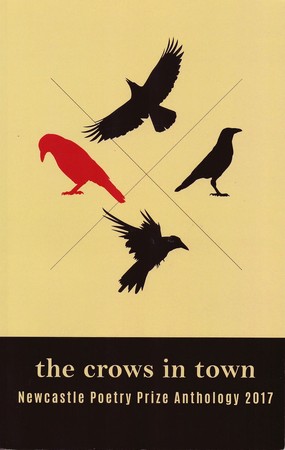
Andrew’s poem “Kyoto Maple Conceits” has been included in The Crows In Town: Newcastle Poetry Prize Anthology 2017, eds Kevin Brophy & Eileen Chong (Hunter Writers Centre & The University of Newcastle, 2017). “Kyoto Maple Conceits” is a suite of 8 tanka. The first two “conceits” in the suite are:
i
Pretending menace
while riding the current down
the disused canal—
a fleet of little fireboats
set adrift by the maples.
ii
With pinking scissors
and crimson dye, maples make
pretty autumn kites—
but they are mostly flightless,
being bobtailed and stringless.
© Andrew Lansdown
Tags: Poems
December 8th, 2017

Four of Andrew’s poems were published in the November 2017 issue of Quadrant: “from Vegetal Variations”, “”Kyoto Autumn Maples”, “Prattle”, and “The Succour Trees”.
“Kyoto Autumn Maples” is a set of six tanka that won the $1,500 2016 Melbourne Poets Union International Poetry Prize.
Tags: Poems
December 7th, 2017
The August 2017 issue of The Mozzie (Vol. 25, No. 6) contains Andrew’s poem titled “A Little Herd”.
Tags: Poems
December 7th, 2017
The July 2017 issue of The Mozzie (Vol. 25, No. 5) contains one of Andrew’s poems—a set of 3 tanka titled “Ambush”.
Tags: Poems
August 8th, 2017

Photo: Maple, Nara, Japan — © Andrew Lansdown
The April-May 2017 issue of The Mozzie (Vol. 25, No. 3) contains one of Andrew’s poems—a tanka titled “Fall”, reprinted below:
Fall
Little maple,
I’ve seen pictures of a girl
a German Jew,
who was, like you, skeletal—
and she wore a small star too.
© Andrew Lansdown
Tags: Poems
August 5th, 2017

One of Andrew’s poems was published in the June 2017 issue of Quadrant. The poem, a suite of five haiku, is titled “Bird Haiku”. The first and last haiku in the sequence are:
Bird Haiku
……….i
The overhead wire—
a pair of welcome swallows
singing in the sag.
……….v
Such a lovely note—
how could I not look up to
find the pardalote?
© Andrew Lansdown
Tags: Poems
May 10th, 2017

Andrew’s poem, “A Little Herd”, has been published in the Australian Poetry Anthology, Volume 5, 2016. The Anthology is published by Australian Poetry Ltd and was edited by Lisa Gorton and Toby Fitch. It can be purchased from the Australian Poetry website, here.
Tags: Poems
May 10th, 2017

One of Andrew’s poems was published in the April 2017 issue of Quadrant. The poem, a tanka, is titled “Gossiper” and is reprinted below:
.
Gossiper
.
As a brass clapper
in a windbell, so a tongue
in a gossip’s mouth.
Any wind will make it swing
to strike out its single note.
.
© Andrew Lansdown
Tags: Poems
May 10th, 2017
The March 2017 issue of The Mozzie (Vol. 25, No. 2) contains two of Andrew’s poems: “The Pleasure” and “Visiting Basho’s Grave”.
Tags: Poems
April 6th, 2017
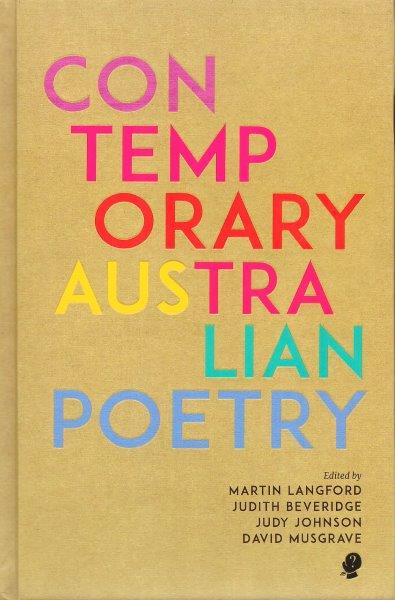 Two of Andrew’s poems have been included in the Puncher & Wattmann anthology, Contemporary Australian Poetry, edited by Martin Langford, Judith Beveridge, Judy Johnson and David Musgrave.
Two of Andrew’s poems have been included in the Puncher & Wattmann anthology, Contemporary Australian Poetry, edited by Martin Langford, Judith Beveridge, Judy Johnson and David Musgrave.
Andrew’s poems in the anthology are “His Free Hand” and “Meditations on Pain”, selected from his books Fontanelle (Five Islands Press, 2004) and Inadvertent Things (Walleah Press, 2013).
According to the publisher’s website:
“In the past 25 years, Australian poetry has reached a remarkable level of achievement. Never has the quality been stronger, nor the number of distinctive voices greater. The best poetry produced in this country is world-class.
“Australian poetry has become both self-sustaining – a major source of inspiration and dialogue for Australian practitioners – and also a vital part of the larger conversation in the English speaking world. Puncher & Wattmann has now published Contemporary Australian Poetry, bringing together this extraordinary accomplishment.
“The four editors are poets of longstanding achievement. As editors they have had extensive exposure to the variety and scope of Australian poetry over many years. Martin Langford is an anthologist, essayist and poetry reviewer for Meanjin. Judith Beveridge has edited numerous anthologies and was poetry editor at Meanjin 2005- 2015. Judy Johnson was Managing Editor for the Wagtail series of chapbooks 2000-2011 and David Musgrave has been publisher and editor of Puncher and Wattmann since he founded P&W in 2005.
“What was the criterion for considering work for the anthology? Firstly, that the poet should have published at least one book during the period under investigation. For a decade, the editors researched and read exhaustively: collections, chapbooks, anthologies, journals. There was no unqualified acceptance of particular opinions or preferences. The editors read every poem brought to the table for consideration. Each poem included in the anthology has been approved by at least three out of four editors. Nevertheless any selection, as the forward states … ‘can only be made through the unstable lenses of competing poetics and claims.’ Contemporary Australian Poetry is not intended to be an end in itself, but a starting point for the competing opinions which might emerge.
“The most rewarding result of the editors’ reading was the growing estimation of how many quality poets are practising in this country. They came to the conclusion that thirty or more poets are capable of producing not only a single stunning poem, but of sustaining a high level of accomplishment over many years. These poets have the capacity to control every nuance of tone and meaning in their work and to finely calibrate implication against the complexities of context.
“One of the purposes of Contemporary Australian Poetry is to provoke any public narrative which dismisses such a remarkable number of fine poets and leaves the genre itself in a small, airless cupboard under the stairs of our literary culture. While no one was looking, our poetry has become too large for the space set aside for it, too important to be quiet, and too insistent to be ignored. It has evolved into one of our country’s greatest cultural achievements. But this too is merely a claim. Perhaps it is better for the reader to pick up a copy of Contemporary Australian Poetry and draw their own conclusions.”
Tags: Poems
April 4th, 2017
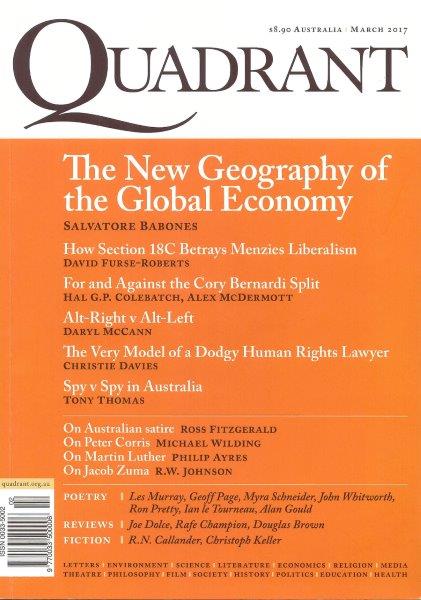
The March 2017 issue of Quadrant contains one of Andrew’s poems. Titled, “Dearly Departed”, it is reprinted below:
Dearly Departed
So much of it, my childhood,
departed this world with you.
Though I lived it, I can bring back
only brief moments of it:
candle-smoke and a blue trike,
a Band-Aid on a skinned knee,
your bosomy hugs during
nights of dread dreams about … what?
Mother, I meant to ask you
so many things about me,
so many whens, hows and whys
that can never now be known.
The loss of both your presence
and my history presses on me
as an ever-present absence.
© Andrew Lansdown
Tags: Poems
March 30th, 2017
The Review magazine, published by and distributed with the Weekend Australian newspaper, published two of Andrew’s poems last weekend, 25-26 March 2017. Both poems, “Kilter” and “Untrousered Tanuki”, are gunsaku, sets of haiku linked by common subjects/themes.
“Untrousered Tanuki” is a set of humorous haiku about the ceramic racoon-dogs called tanuki (pictured below) that abound in gardens and doorways in the Kansai region of Japan. Andrew has seen (and photographed!) hundreds of these scoundrels in Kyoto and Nara during several visits there with his wife, Susan. 
Photograph: Tanuki in Arashiyama © Andrew Lansdown
.
Untrousered Tanuki
Concerning the ceramic racoon dogs of Kyoto
…….i
Hey, tanuki,
did you model your bulges
on a sumo’s?
…….ii
Your bamboo hat’s
tremendous, tanuki, but
where are your daks?
…….iii
‘Have some decorum,’
a sumo tells a tanuki—
‘cover your scrotum!’
…….iv
The expression
‘privates’, tanuki, is common
for good reason.
…….v
Even a flasher,
tanuki, doesn’t expose
himself forever!
…….vi
Tanuki anthem—
Joe Cocker’s jaunty song, ‘You
can leave your hat on.’
…………..© Andrew Lansdown
Tags: Poems
February 21st, 2017
 Two of Andrew’s poems have been included in The Fremantle Press Anthology of Western Australian Poetry. As the title indicates, the anthology is published by Fremantle Press, a press that has published three collections of Andrew’s poetry–Homecoming (1979), Windfalls (1984) and The Colour of Life (in Two Poets, 2011).
Two of Andrew’s poems have been included in The Fremantle Press Anthology of Western Australian Poetry. As the title indicates, the anthology is published by Fremantle Press, a press that has published three collections of Andrew’s poetry–Homecoming (1979), Windfalls (1984) and The Colour of Life (in Two Poets, 2011).
The anthology has been edited by Australian poets John Kinsella and Tracy Ryan.
Andrew’s poems in the anthology are “Between Glances” and “Emergence”.
Tags: Poems
February 21st, 2017
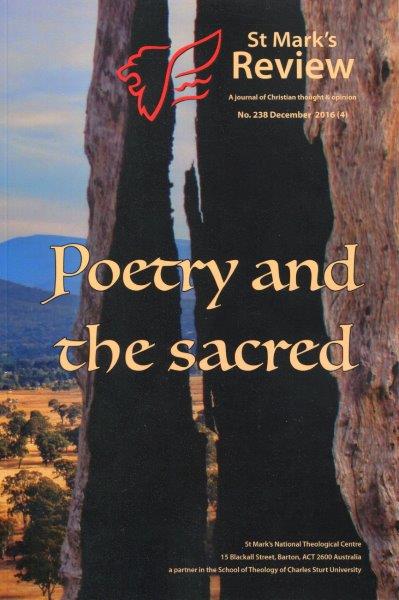 Five of Andrew’s poems have been published in a special issue of St Mark’s Review (No. 238, December 2016), which is published quarterly by St Mark’s National Theological Centre in Canberra.
Five of Andrew’s poems have been published in a special issue of St Mark’s Review (No. 238, December 2016), which is published quarterly by St Mark’s National Theological Centre in Canberra.
The special issue, titled Poetry and the sacred, was guest-edited by Australian poet, John Foulcher.
Other poets represented in the magazine include Alex Skovron, Michelle Cahill, Robert Gray, Kevin Hart, Anne Elvey, Judith Beveridge, Mark Tredinnick, Alan Gould, Geoff Page and Bruce Dawe.
Andrew’s poems in St Mark’s Review No. 238 are “Sakura Haiku”, “Sheep”, “In Transit”, “Black Bamboo” and “Sehnsucht“.
Tags: Poems
February 4th, 2017
Andrew has won the 2016 Melbourne Poets Union International Poetry Prize. The $1,500 prize was awarded to him for his poem “Kyoto Autumn Maples”, which is a sequence of six tanka.
In his Judge’s Report, poet John Jenkins expressed great admiration for “Kyoto Autumn Maples”. His opening comment was:
This winning poem is a model of clarity and economy, of descriptive facility and finely wrought imagery. It is about a foreigner who visits maple groves on the hillsides around Kyoto, Japan.
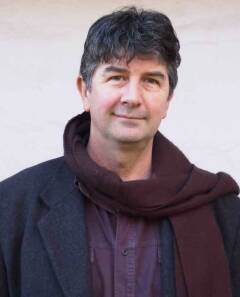
Competition Judge, John Jenkins
After offering detailed comments on each of the six tanka comprising the poem, Jenkins concluded:
Thus the maples and maple walk register a range of human senses and modes of perception, all accreting into an elegant whole; though not in an over-studied way, but with a light, almost casual hand. In spite of its exotic setting, the poem has an unforced familiarity, that of a traveller simply describing a journey, someone on holiday who is simply looking on – yet a traveller who, as it becomes increasingly obvious – also has a clear-minded ability to deeply enter and appreciate other cultures.
Tags: News · Poems
January 15th, 2017
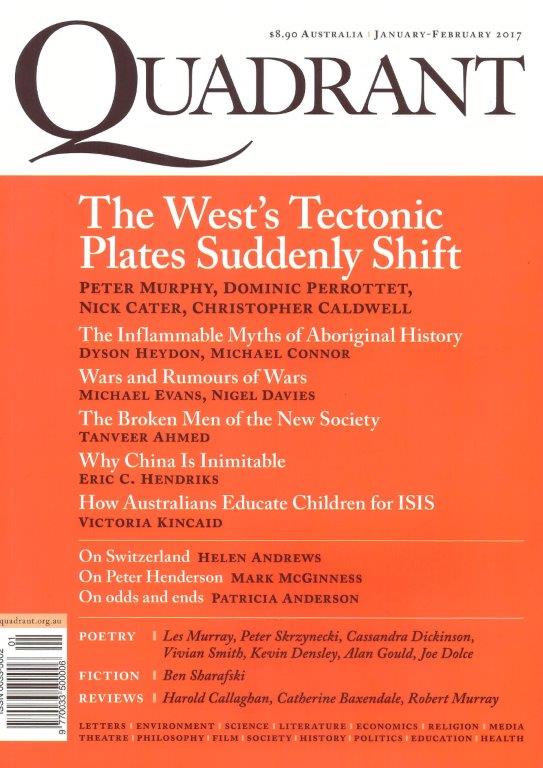 The January-February 2017 issue of Quadrant contains two of Andrew’s poems: “Heron” and “Splendid”. Both poems are three-haiku gunsaku. The third haiku in “Splendid” is:
The January-February 2017 issue of Quadrant contains two of Andrew’s poems: “Heron” and “Splendid”. Both poems are three-haiku gunsaku. The third haiku in “Splendid” is:
If not in colour,
at least in shape–the female
splendid blue wren.
© Andrew Lansdown
Tags: Poems
January 14th, 2017
 The latest issue of Studio magazine (No. 139) contains one of Andrew’s poems, “In the Gardens of the Imperial Palace”.
The latest issue of Studio magazine (No. 139) contains one of Andrew’s poems, “In the Gardens of the Imperial Palace”.
Also, one of Andrew’s photographs has been used on the cover.
Tags: Poems
January 13th, 2017

USA publisher, Cascade Books (Eugene, Oregon), has included four of Andrew’s poems in an anthology of Christian poetry titled The Turning Aside, edited by Canadian poet, D.S. Martin. Poems by Andrew in the anthology are: “The Colour of Life”, “Prayer”, “Kangaroos” and “Black Bamboo”.
Editor D.S Martin comments,
The Turning Aside is about stepping out of our routines–like Moses turning from tending sheep, like a certain man selling his everything to buy a field–to take time to consider the ways of God in the company of some of the finest poets of our time. Turn aside with such established poets as Wendell Berry, Les Murray, Luci Shaw, Elizabeth Jennings, Richard Wilbur, Dana Gioia, and Christian Wiman–and respond to their invitation for us to muse along with them. Walk with poets from various parts of the planet, even though some of them are less known, whose words have been carefully crafted to encourage us in our turning aside.
The Turning Aside is a collection of Christian poetry from dozens of the most spiritually insightful poetic voices of recent years. It is a book I have long dreamed of compiling, and it has grown beyond my mere imagining in its fulfilment.
Reviews and endorsements of the anthology (posted on the publisher’s website) are encouraging:
“D. S. Martin’s The Turning Aside offers a marvelous harvest of serious Christian poetry–an unusually rich and various representation of spiritual as well as poetic excellence. This is a treasury, a volume for the bedside table, there to be savored slowly–read as a prompt to meditation, prayer, and a deepened devotion to Scripture.”
–David Lyle Jeffrey, FRSC, Distinguished Professor of Literature and the Humanities, Baylor University
“I have been waiting for this collection for thirty years, literally. I am almost speechless. In this company of poets, lifters-of-the-veil between heaven and earth, I have no need for my own words. I only want to borrow theirs. And I shall–in worship, in church, in literary company. I am certain this magnificent collection will turn many aside from our mechanistic tromp through our days into the wondrous, piercing reality of God-with-us right here, right now.”
–Leslie Leyland Fields, poet, speaker, and author of Crossing the Waters: Following Jesus through the Storms, the Fish, the Doubt, and the Seas
“The Turning Aside is a spectacular collection bringing together under one roof the finest Christian poets of the age. Its pages provide awesome, inspiring, even mystical reading, with lines to linger over in meditation.”
–Ron Hansen, author of The Kid
“This collection brings together an expansive, idiosyncratic, and intriguing group of poets, some you’ll know well and others you’ll be thankful to discover. Their work forms a rich banquet that is often surprising and, in the end, supremely artful. The book has the power to (paraphrasing Tania Runyan) ‘singe the edges of our silent lives.’”
–Daniel Bowman Jr., author of A Plum Tree in Leatherstocking Country; Editor-in-Chief of Relief: A Journal of Art & Faith; Associate Professor of English, Taylor University
The Tuning Aside can be purchased via the publisher’s website here.
Tags: Poems
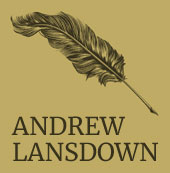
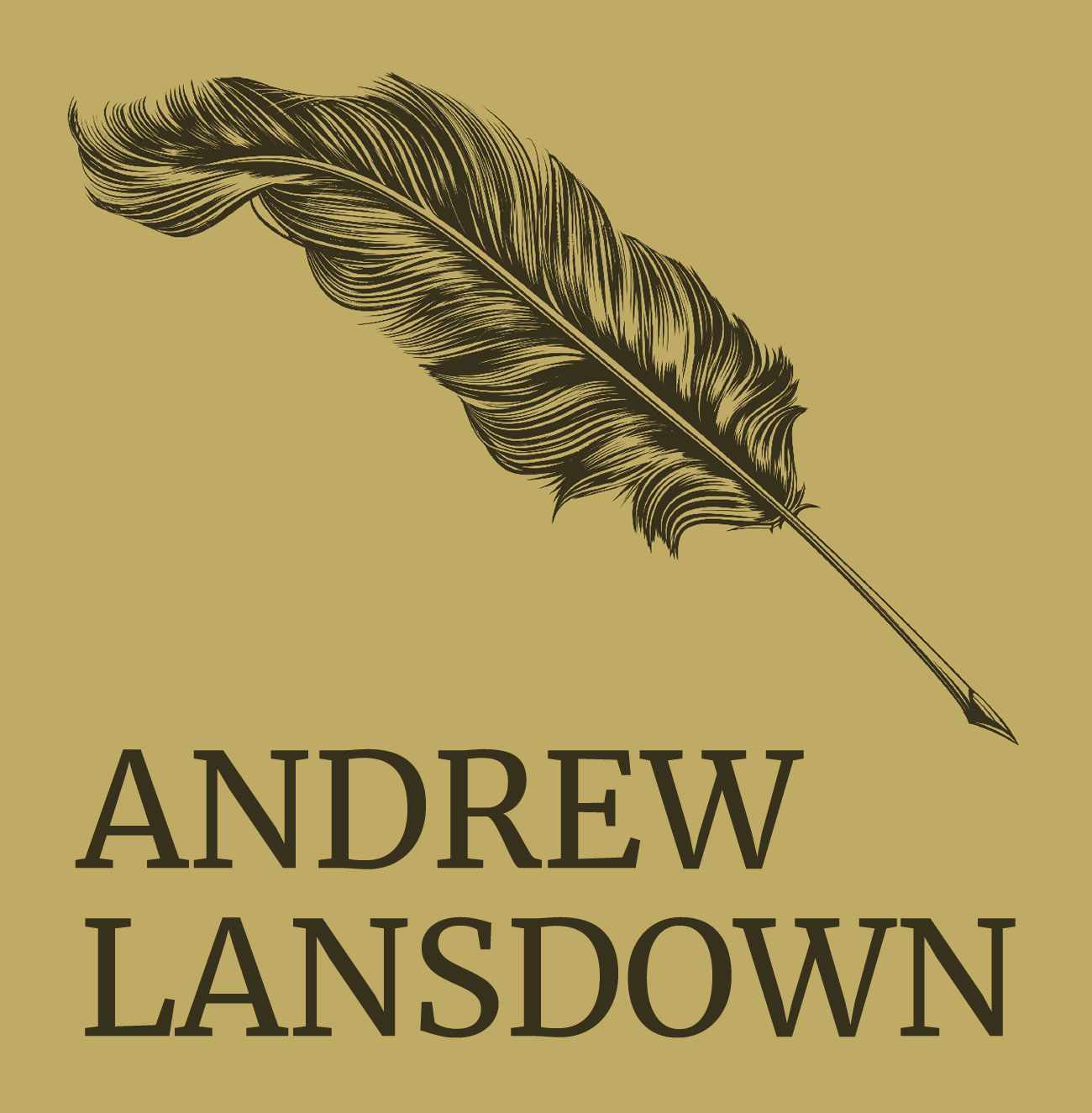






 Two of Andrew’s poems have been included in the Puncher & Wattmann anthology, Contemporary Australian Poetry, edited by Martin Langford, Judith Beveridge, Judy Johnson and David Musgrave.
Two of Andrew’s poems have been included in the Puncher & Wattmann anthology, Contemporary Australian Poetry, edited by Martin Langford, Judith Beveridge, Judy Johnson and David Musgrave.


 Five of Andrew’s poems have been published in a special issue of St Mark’s Review (No. 238, December 2016), which is published quarterly by St Mark’s National Theological Centre in Canberra.
Five of Andrew’s poems have been published in a special issue of St Mark’s Review (No. 238, December 2016), which is published quarterly by St Mark’s National Theological Centre in Canberra.
 The January-February 2017 issue of Quadrant contains two of Andrew’s poems: “Heron” and “Splendid”. Both poems are three-haiku gunsaku. The third haiku in “Splendid” is:
The January-February 2017 issue of Quadrant contains two of Andrew’s poems: “Heron” and “Splendid”. Both poems are three-haiku gunsaku. The third haiku in “Splendid” is: The latest issue of Studio magazine (No. 139) contains one of Andrew’s poems, “In the Gardens of the Imperial Palace”.
The latest issue of Studio magazine (No. 139) contains one of Andrew’s poems, “In the Gardens of the Imperial Palace”.